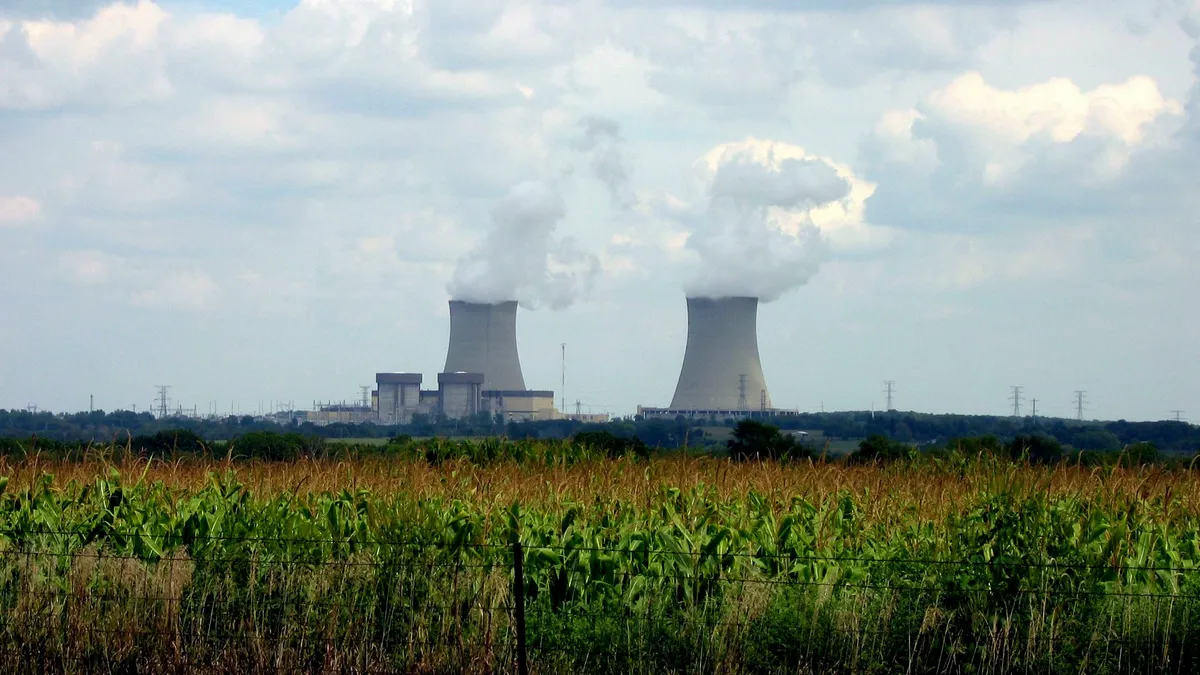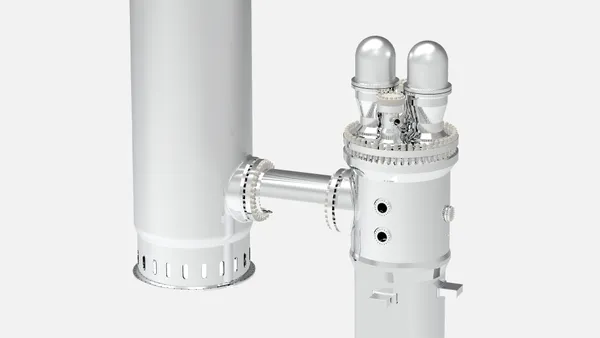Dive Brief:
- Exelon told Illinois regulators that it needs $580 million to keep most of its nuclear units operating in the state, but even that may not be enough to keep all units running.
- Exelon Senior Vice President Kathleen Barron told state regulators that increasing power prices by $6 per megawatt-hour would help the company keep the units operational.
- The company is losing money at two nuclear generating stations, the single-unit Clinton Plant in southern Illinois and the two-unit Quad Cities plant further upstate.
Dive Insight:
Illinois' path to EPA compliance will be complicated and expensive.
Exelon won't talk concretely about what it will take to keep its Illinois nuclear fleet running, but the $580 million is based on Barron's testimony to the Illinois Commerce Commission. Crain's Chicago Business pressed on the matter and reports that Exelon issued a statement saying a $6 per megawatt-hour increase was in line with EPA recommendations. But the environmental agency told Crain's that the $6 per megawatt-hour figure wasn't a recommendation, but an estimate of what marginal nuclear plants might need to stay operational.
EPA's rule requires Illinois to slash emissions by 33% in the next 16 years compared to 2005 levels, and Exelon's nuclear facilities will be key to meeting that goal. But the company says it can't guarantee that getting the $6 per megawatt-hour price bump would even keep all of its nuclear units running.
The company operates six stations with 11 total units, and has said two stations are losing money. “Each of our 11 nuclear units in Illinois has a different cost structure and different requirements," Exelon told Crain's.















